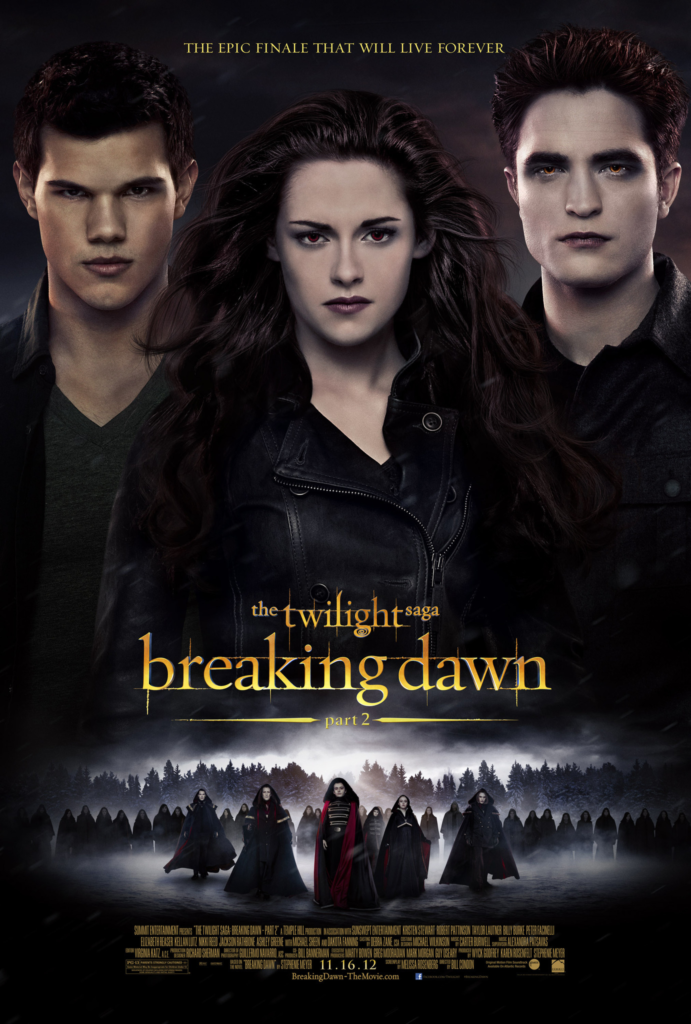The Twilight Saga: Breaking Dawn – Part 2 Christian Review

At long last, the saga comes to a close. The Twilight Saga: Breaking Dawn – Part 2 doesn’t tiptoe to the finish line; it sprints, leaps, and then pirouettes through the grandiose absurdity of its world. For those who’ve invested in every tortured glance and unspoken promise between Bella and Edward, this film is an emotional crescendo. But as the curtain falls on this love story steeped in supernatural intrigue, how does it hold up when viewed through a Christian lens? Let’s sink our teeth into this one.
Bella Swan: From Fragile to Fierce
The Bella Swan we meet in this film feels like a completely different character. And maybe that’s the point. As a newly minted vampire, Bella is no longer the timid, lip-biting girl with a penchant for self-pity. She is, quite literally, reborn: powerful, confident, and unflinchingly determined. Watching her tap into this newfound strength is admittedly satisfying. Kristen Stewart seems to relish this evolution, injecting Bella with an energy that’s been sorely lacking in previous installments.
But herein lies a tension worth examining. Bella’s empowerment is framed almost entirely through her transformation into a vampire, a creature defined by immortality and physical perfection. There’s an implicit suggestion that true strength comes from shedding human frailty—a notion that runs counter to the Christian understanding of grace. Strength, in the Christian worldview, is perfected in weakness (2 Corinthians 12:9). Bella’s journey, while compelling, veers sharply into the realm of self-deification. She’s no longer simply a young woman navigating love and identity; she’s a goddess among mortals, commanding awe and fear in equal measure.
Family as a Fortress
For all its flaws, the film does get one thing undeniably right: the importance of family. The Cullens band together, risking everything to protect Bella, Edward, and their daughter, Renesmee, from the Volturi. The film captures this collective effort with a sincerity that’s hard to ignore. There’s a palpable sense of love and loyalty that resonates deeply, even if the stakes involve vampires and werewolves rather than everyday struggles.
This emphasis on family mirrors a biblical principle: the idea that we are stronger together, united in purpose. Ecclesiastes 4:12 reminds us, “A cord of three strands is not quickly broken.” The Cullens embody this unity, standing firm against the oppressive power of the Volturi. It’s a beautiful depiction of sacrificial love, even if the film doesn’t explicitly frame it in spiritual terms.
Aro and the Face of Evil
Let’s talk about Michael Sheen’s Aro, because what a delightfully bizarre villain he is. With a smile that can chill and charm in equal measure, Aro is the kind of character who thrives on chaos. Sheen’s performance is so over-the-top it borders on camp, yet it works. He’s the embodiment of power corrupted, a ruler who demands loyalty not out of love but fear.
For Christians, Aro is a cautionary tale. His insatiable thirst for control reflects the dangers of pride and self-exaltation. Yet, the film doesn’t offer much in terms of redemption for its villains. Aro’s eventual downfall feels more like a narrative inevitability than a moral reckoning. There’s no acknowledgment of the transformative power of grace, no opportunity for repentance. Evil is defeated, yes, but it’s a hollow victory when viewed through a spiritual lens.
The Battle That Wasn’t
And now, the moment everyone remembers: the climactic battle that turns out to be… well, not quite real. This twist has divided fans, with some praising its cleverness and others lamenting its lack of payoff. From a storytelling perspective, it’s undeniably bold. Instead of ending with a blood-soaked victory, the film opts for a resolution rooted in understanding.
For Christian viewers, this choice might feel oddly appropriate. Romans 12:18 encourages us, “If it is possible, as far as it depends on you, live at peace with everyone.” The avoidance of actual carnage suggests that reconciliation, however tenuous, is preferable to destruction. Yet, the scene’s execution leaves something to be desired. The film wants us to celebrate this peaceful resolution, but it’s hard not to feel cheated after such an intense buildup.
Romantic Idolatry and Bella’s Sacrifices
The romance at the heart of Twilight has always been its most polarizing aspect. Edward and Bella’s relationship is obsessive, to say the least. Bella’s willingness to abandon her human life—and, symbolically, her soul—for Edward is troubling. This final installment doesn’t shy away from that reality. Instead, it doubles down, presenting Bella’s transformation as the ultimate act of devotion.
From a Christian perspective, this raises significant concerns. Romantic love, while beautiful and sacred, is not meant to take the place of God. Bella’s sacrifices, while framed as noble, reflect a distorted view of love. True love seeks the good of the other, but it also respects the boundaries of one’s own identity and spiritual integrity.
Visual Splendor and Emotional Payoff
If there’s one thing Breaking Dawn – Part 2 does well, it’s spectacle. The cinematography captures the grandeur of the Pacific Northwest, juxtaposing the natural beauty of the landscape with the supernatural elements of the story. The emotional beats, too, land more effectively in this film than in previous installments. The bond between Bella, Edward, and Renesmee feels genuine, giving the film a warmth that’s often been missing.
Yet, for all its visual and emotional appeal, the film struggles to anchor itself in anything deeper. Its focus remains firmly on the here and now, with little regard for eternal truths. This temporal perspective makes the story feel shallow, even as it aims for epic grandeur.
Closing Thoughts: A Bittersweet Farewell
As the credits roll and Christina Perri’s “A Thousand Years” swells in the background, it’s hard not to feel a sense of closure. For better or worse, The Twilight Saga has left an indelible mark on popular culture. Breaking Dawn – Part 2 is a fitting end, delivering the drama and romance fans have come to expect while offering a few surprises along the way.
But for Christian audiences, the film’s deeper implications are harder to ignore. Its celebration of power, its skewed portrayal of love, and its lack of a moral anchor leave much to be desired. There are glimmers of truth—moments of loyalty, sacrifice, and reconciliation—that resonate. Yet, these moments are overshadowed by the story’s fixation on self-fulfillment and temporal desires.
Final Rating: 6/10
Ultimately, Breaking Dawn – Part 2 is an entertaining spectacle with moments of genuine emotion. For fans of the series, it’s a satisfying conclusion. For Christian viewers, it’s a reminder of the importance of discernment when engaging with stories that captivate the imagination but challenge the spirit.






